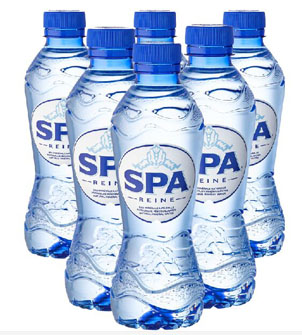
Bottled water consumption has grown exponentially over the past ten to fifteen years. This growth has taken place globally, but particularly in Europe and North America. The bottled water industry has literally created its own water culture. For example, when one enters a gas station, grocery store or a restaurant in any country of the world, one is bound to find at least a few different brands of bottled water. Bottled water is somewhat less likely to be found in developing countries, where public water is least safe to drink. Many government programs regularly disperse bottled water for various reasons. Distributing small bottles of water is much easier than distributing large bulk storages of water. Also contamination from large water storage containers is much more likely than from single 12-20 ounce bottles of water.
Many countries have become very oriented toward bottled water. According to a World Wildlife Fund survey, individuals around the globe consume some 89 billion liters of bottle water annually, worth roughly $22 million. Citizens of the U.S. alone consume about 13 billions liters of bottled water. A report conducted by Yankelovich Partneers of the Rockefeller University discovered that 2.3 eight-ounce servings of the total 6.1 servings of water that are consumed daily are bottled water in the U.S. Bottled Water Consumption.
Although there are relatively few regulations on what bottled water can contain, people have very differing opinions on possible benefits and drawbacks of bottled water. Currently there are multiple studies showing numerous bottled water brands containing harmful substances. According to a four-year scientific study by the Natural Resources Defense Council, over a third of the tested brands contain contaminants such as arsenic and carcinogenic compounds. This study of 103 different brands encompassing over 1,000 bottles showed that one-third of the water in these bottles exceeded state or industry safety standards.
An earlier study by Ohio State University (found at Common Dreams News Center) found that 39 out of 57 bottled water samples did indeed have "purer" water than tap water. However, 15 samples had significantly high bacteria samples. The scientists agreed that all of the water was safe to drink, but the study clearly showed how claims of bottled water purity can be misleading. While one can evaluate the chemical contents of water, most consumers choose bottled water for its taste. A large majority of bottled water consumers drink bottled water because they believe it has better health benefits, and many consume such large quantities due to its taste. Globally most people associate bottled water with tasting better. However, when Good Morning America conducted a taste test of its studio audience, New York City tap water was chosen as the heavy favorite over the oxygenated water 02, Poland Spring and Evian.
Some global agencies such as the World Health Organization have neutral feelings regarding possible health benefits or drawbacks from the consumption of bottled water. On WHO's website they claim that many European consumers believe that natural mineral waters have medicinal or other health properties. WHO respects these beliefs, but has been unable to find convincing evidence to support the mineral water consumption benefits. There have been few quality studies regarding health effects of drinking bottled water. Many researchers believe that the benefits of bottled water are based mainly on a common ideology.




